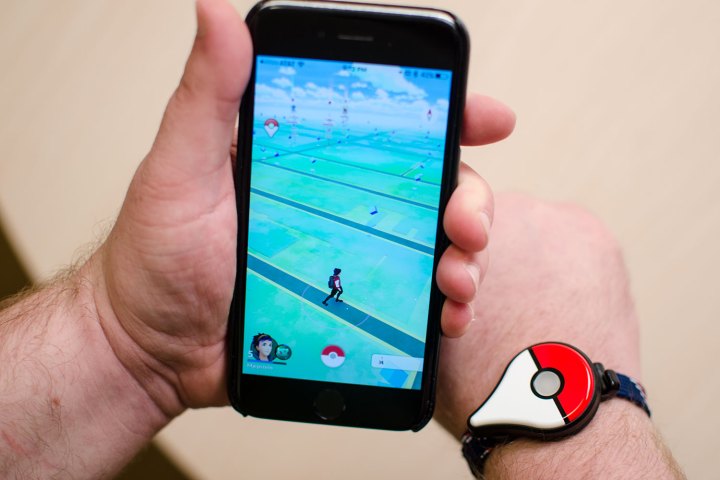
It’s no wonder, then, that some government regulators are instituting Pokémon Go bans aimed at curbing careless play. On Tuesday, the Milwaukee County Board passed an ordinance requiring the developers of “location-based augmented reality games” like Pokémon Go to obtain permits before using public parks as in-game landmarks.
The new regulation is specifically leveled at game developers, and it’s said to be a response to the County Parks Department’s inability to hold Niantic Inc., the development house behind Pokémon Go, financially accountable after hundreds of players failed to heed the popular Lake Park’s closing hours. The throngs reportedly caused traffic congestion and parking problems, and attracted unauthorized vendors who trampled turf and damaged natural areas.
At fault was Pokémon Go’s designation of several Lake Park landmarks and historic sites as Pokéstops, in-game locations that contain caches of Pokéballs, health potions, and other equipment, the Milwaukee Journal Sentinel reports. Crews of inmates from the county’s House of Corrections were able to complete the entirety of their community service by picking up litter left by Pokémon Go players at Lake Park.
Under the proposed ordinance, park staff will set fees for establishing permits. The parks department will then decide if the proposed locations are appropriate for use by players of augmented reality games, considering criteria like personal safety, impact on rare plants and wildlife, and the “expected intensity” of activity. And they’ll have the freedom to impose penalties for companies which don’t comply.
The Milwaukee County Parks Director, John Dargle, sent a letter to Niantic in August demanding that the company obtain geocaching permits for each Pokémon character location within the county’s parks. It would have required the company to monitor each location at least four times a year for damage caused by players. But the county’s geocaching requirements were found inapplicable by a local court.
Milwaukee isn’t the first to restrict the use of augmented reality games in public — and private — places. A mayor in the French city of Bressolles banned Pokémon Go from restaurants and cafes. China recently banned all augmented reality games, citing national security concerns, as did Saudi Arabia, Egypt, and Indonesia.


